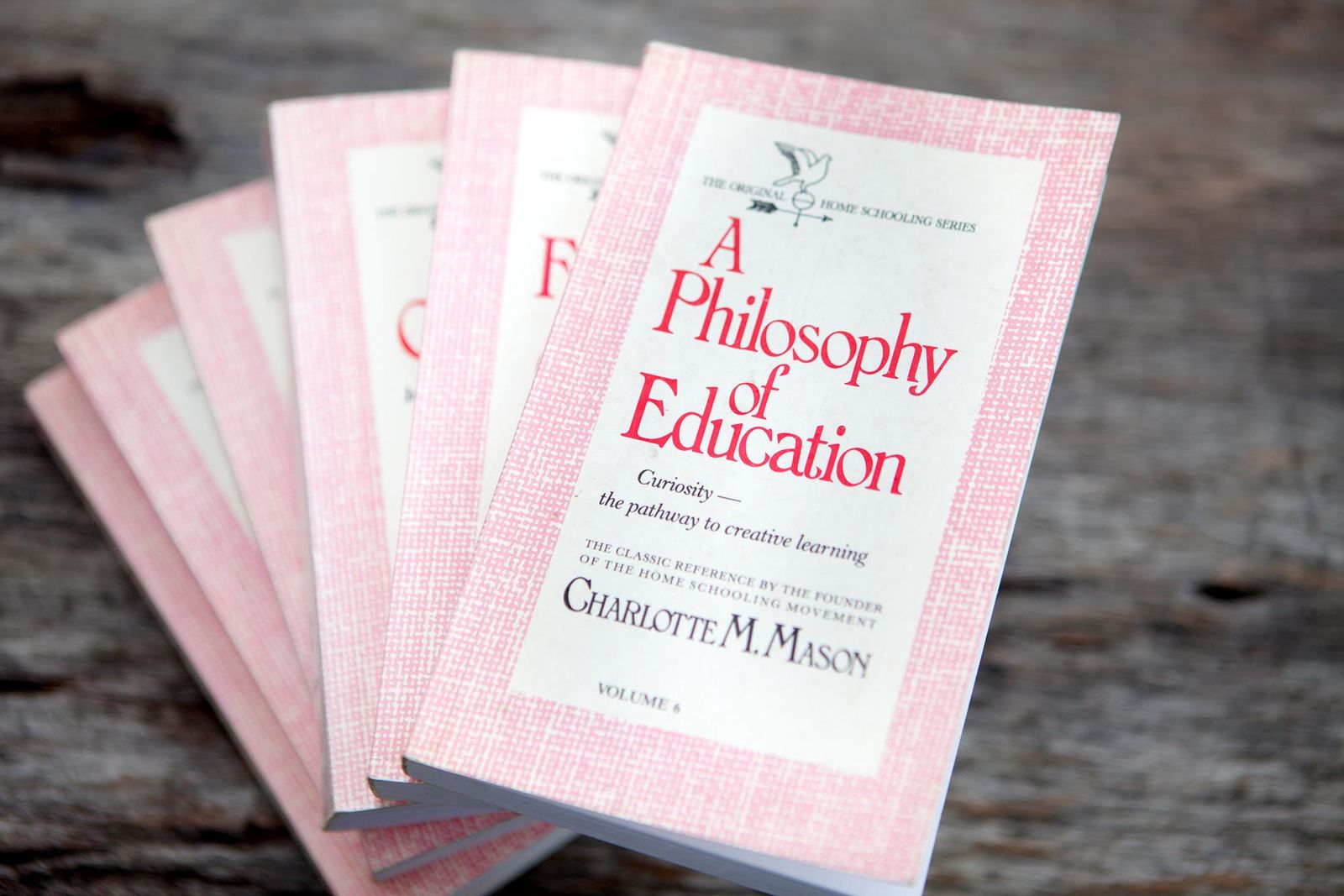
Philosophy
"Observe how it covers the question from the three conceivable points of view. Subjectively, in the child, education is a life; objectively, as affecting the child, education is a discipline; relatively, if we may introduce a third term as regards the environment of the child, education is an atmosphere."
– Charlotte Mason
"Charlotte Mason (1842-1923) was an English educator, author and thinker, committed to providing an educational approach that cultivated an optimal learning atmosphere; developed balanced relationships and habits; and provided students access to the best work of the best minds."
"The unlikely pioneer of a social and intellectual movement, Mason dedicated much of her life to bringing “common thought on the subject of education to the level of scientific research”. Her theories were tested in thousands of English schools in the late 19th and early 20th centuries. Teachers and children using her approach consistently flourished in knowledge and character."
Seven tenets underpin her (and our) philosophy:
- Children as Persons
- The Power of Attention
- Education as Relations
- Education as Atmosphere
- Education as Discipline
- Education as Life
- The Importance of Delight and Struggle
"We attempt to define a person, the most commonplace person we know, but he will not submit to bounds; some unexpected beauty of nature breaks out; we find he is not what we thought, and begin to suspect that every person exceeds our power of measurement. I believe that the first article of a valid educational creed – “Children are born persons” – is of a revolutionary character… We must either reverence or despise children; and while we regard them as incomplete and undeveloped beings… rather than as weak and ignorant persons (whose ignorance we must inform and whose weakness we must support, but whose potentialities are as great as our own), we cannot do otherwise than despise children, however kindly or even tenderly we commit the offense."
– Essex Cholmondeley, The Story of Charlotte Mason
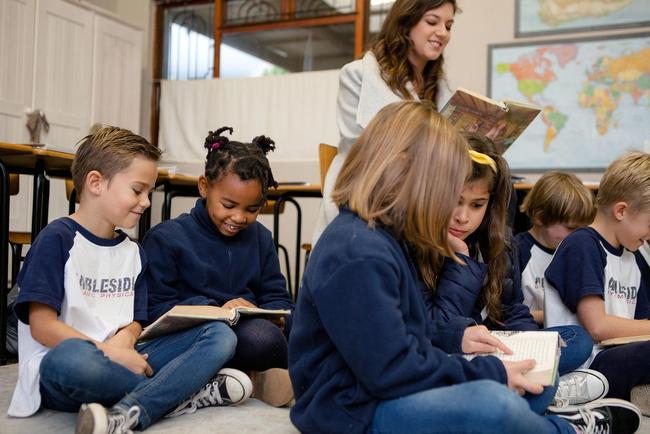
We have all been defined by character or ability. Some of us as musical, athletic, bright or mathematically inclined. Perhaps as tone deaf, clumsy, average or with no aptitude for maths. Defining a child is a common way to identify who he/she is, to locate something they’re good at, to bolster their self-esteem, to place them on the right track in school, to direct their extra-curricular activities.
Yet whenever we attempt to define a person, some unexpected and beautiful aspect of their nature breaks out that defies our definition. We find that he/she is not exactly what we thought.
At Ambleside we believe that every person has the ability to exceed our power of measurement. Which is why we do not define children by their strengths or weaknesses. Instead, we view all children as whole people, created in God’s image with a vast potential for a fruitful life filled with a diverse array of interests and relationships.
As these whole persons with yet untapped potential, all children at Ambleside experience a broad, rigorous curriculum. All can calculate, solve, attend, explore, ponder, recite, paint and sing. All are held to a high standard in relationship to self, others, ideas and work. All can learn without the external motivation of grades, rewards, punishment or manipulation. All can master the habits of a life well lived, appreciate a wealth of ideas and knowledge in well-written books, and complete tasks worthy of their attention, time, effort and thought.
"What we have perhaps failed to discover hitherto is the immense hunger for knowledge (curiosity) existing in everyone and the immeasurable power of attention with which everyone is endowed..."
– Charlotte Mason
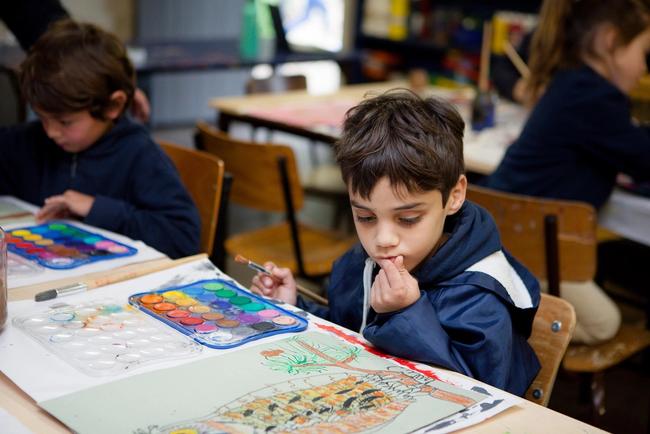
As educators we believe that the primary work of both our students and our teachers is to attend. It is a task that precedes all others.
By explanation, all children attend to something in class. But the question is, to what are they attending? Is it to distracting thoughts, self-consciousness or concern over whether or not they “need to know this for the test”. Is their attention directed to this final outcome: will this help me pass?
It too often is, and because of this students are taught to value knowledge and ideas mainly related to how they pertain to examinations and test results rather than for the ideas and knowledge themselves.
And that is our aim at Ambleside: for our students to truly value what is being presented to them.
It is for this reason that the children learn to direct their attention to the “text” – whether the text is a well-written book, a musical composition, an algorithm, a great master’s painting, a nature specimen or an instruction in a special skill.
This power of attention is driven chiefly by a study method called “narration” whereby students study a text and then narrate back what they see, hear or read.
During this process, their minds stir and grow as they seize ideas independently, or receive them from teachers or fellow students. Every Ambleside teacher strives to provide students with a “feast” for their minds, instead of simply “fast food” for an imminent test.
As they encounter the many texts around them in this way, Ambleside students become:
- Consistent in habits of directing their attention to what’s being taught, to learning and to working with effort
- Engaged in understanding and expressing substantial ideas
- Proficient in reading rich text, writing essays and speaking publicly
- Eager to encounter great works of literature, science, music and art
- Proficient in conversing and reading in at least one foreign language
- Mature in relating to themselves and to the challenges they face
- Mature in relating to, caring for, forgiving and supporting one another
- Engaged in a life of devotion to God
"... we have relations with what there is in the present and with what there has been in the past, with what is above us, and about us; and that fullness of living and serviceableness depend for each of us upon how far we apprehend these relationships and how many of them we lay hold of. Every child is heir to an enormous patrimony. The question is, what are the formalities necessary to put him in possession of that which is his? We do not talk about... educating him with a view to his social standing or his future calling. We take the child as we find him, a person with many healthy affinities and embryonic attachments, and we try to give him a chance to make the largest possible number of these attachments valid."
– Charlotte Mason

Parents and educators often put a child on the path of a single interest (sports, music or science for example), based on the child's environment or on cultural trends. But a true education lets children encounter and develop vital relationships with a diverse range of people, ideas and things.
By “developing vital relationships” we mean finding real joy and interest in each subject. At Ambleside we foster these relationships to create a lifelong affinity for learning, and to develop understanding of the human nature that enables students to embrace effort and enjoy the rewards of their labour. In this way, true education allows children to make the world their classroom.
With regards to academics, children at Ambleside establish relationships with 16 to 20 areas of learning, including those that don’t pertain to academics. These provide them with life-giving knowledge, living ideas as well as delight and beauty.
Alongside academics, we train our students in how to relate to themselves and others. We teach them healthy habits of conduct and self-control while encouraging them to engage with children older and younger than themselves, as well as those in authority.
Ambleside children build vital relationships, and are therefore better equipped for the world and their futures, when they:
- Engage fully in the vital and varied curriculum presented to them
- Identify and explore areas of personal interest
- Grow in confidence and character as they relate to students in different grades as well as those in authority
- Form the habit of discipline through completing chores and caring for school property
- Expand their experience of education and life beyond the confines of only academics by spending time in nature
- Engage in a system that creates time for them to rejuvenate and play in a world too full of activity and pressure
"The bracing atmosphere of truth and sincerity should be perceived in every school; and here again the common pursuit of knowledge by teacher and class comes to our aid and creates a current of fresh air perceptible even to the chance visitor, who sees the glow of intellectual life and the moral health on the faces of teachers and children alike."
– Charlotte Mason
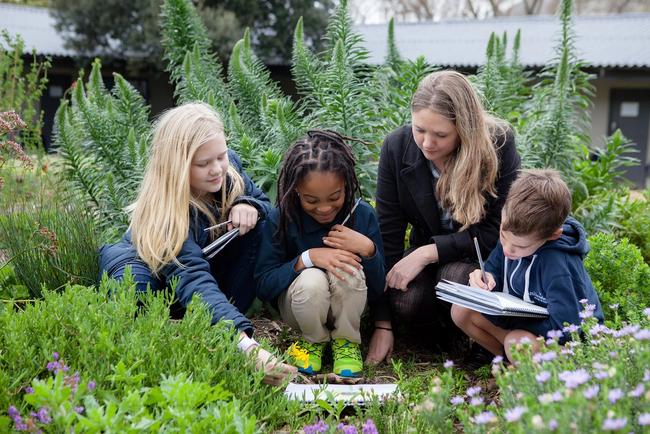
The atmosphere in which children learn and grow is of great importance.
That is why we aim to welcome them into environments filled with beauty and inspiration. Our walls display old masters’ works, wise sayings, maps of faraway places and nature objects the class has gathered. In this way students encounter the past and present, the awe and wonder of science and mathematics, the nobility of humankind and the ebb and flow of life.
Of importance too is the emotional atmosphere in which children flounder or flourish. Our philosophy pivots around the notion of learning for the love of learning which is why we remove the burden of competing for ranks, grades or prizes.
They also encounter the relationship between authority and obedience as they face the natural consequences of their actions under the guiding hands of teachers who are both loving and firm. In this way they experience the delight and struggle of everyday life in an environment where there is respect, trust, order and acceptance.
For this reason, Ambleside teachers seek to cultivate an atmosphere that nurtures:
- Joy and belonging
- Relationships that include, rather than exclude
- A culture that transcends fads
- A pursuit of, and love for, knowledge
- Wonder, as students relate to knowledge, others and God
- Delight in work and in the struggle to grow
- Effort and enjoyment of effort’s fruit
- Rigour, challenge and an opportunity to meet mind to mind
- Variety in work, conversation and focus
"By this formula we mean the discipline of habits formed definitely and thoughtfully whether habits of mind or of body. Physiologists tell us of the adaptation of brain structure to habitual lines of thought, ie to our habits."
– Charlotte Mason
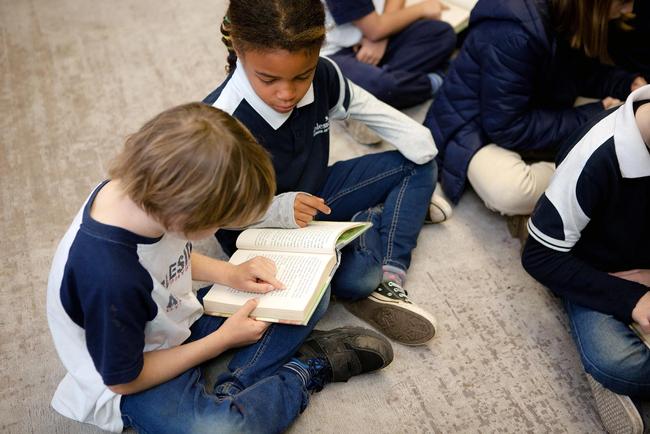
Long before sophisticated imaging technology confirmed it, Charlotte Mason understood that the physical brain is shaped by its experiences. Mason knew that life could be made easier for children by those whose responsibility it was to “lay down habits upon which behaviour might run easily”.
For this reason, Ambleside teachers help students to cultivate lifelong habits that will support learning and mature living. During this formation, our teachers work alongside families, equipping students to live full, satisfying lives; rich in devotion to God, service to others and continued personal growth.
Apart from the curriculum, students learn and practice many habits. To name a few:
- Attention
- Narration
- A mindful approach to work
- Obedience
- Respectful relationships with others
- Critical thinking
- A generous spirit
- Reverence
- Courtesy
- Physical fitness
"For the mind is capable of dealing with only one kind of food; it lives, grows and is nourished upon ideas only; mere information is to it as a meal of sawdust to the body; there are no organs for the assimilation of the one more than of the other."
– Charlotte Mason
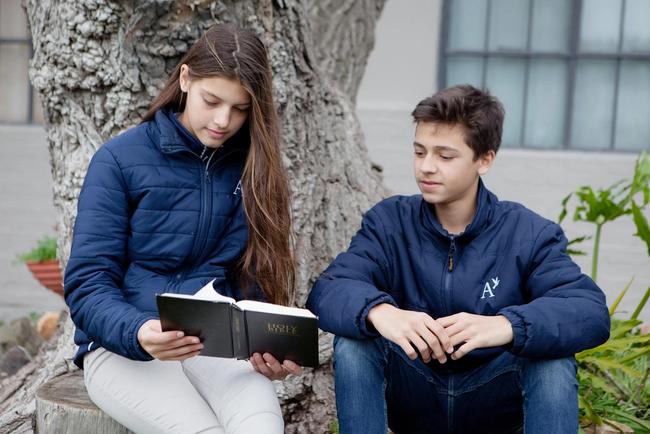
Charlotte Mason believed that minds are nourished when they engage with ideas. Sadly, today, much that passes as education is actually data and technique assessed by quizzes and tests. Day-to-day, week-to-week, even year-to-year, many contemporary students’ hungry minds find only scraps of ideas to feed on.
Real learning happens when students truly engage novelists, poets, philosophers, scientists, mathematicians, artists, musicians, historians and explorers. Real learning happens when students wonder, ask why, discuss, grapple and see how.
Ambleside teachers foster this engagement using carefully chosen Ambleside curricula. For example:
- A student gleans from the Psalmist the idea that one knows God in stillness
- From composition, she receives the idea that silence emphasises solitude or peace
- From composer study, he learns that Mendelssohn copied St Matthew Passion without believing the work could be performed again
These ideas are seeds in the child’s mind. As they germinate, others emerge, and a whole crop springs up from just one morning’s sowing.
At Ambleside, children receive consistent intellectual nourishment via:
- Living books and living things that capture their imagination and hold their attention
- Worthy thought and worthy work that respect their capacity for learning and their intelligence
- Moments of silence and reflection to give them time and space to develop their understanding of what was presented and to form the relationship with the knowledge they’ve assimilated
- Narration and discussion that promotes the assimilation of ideas
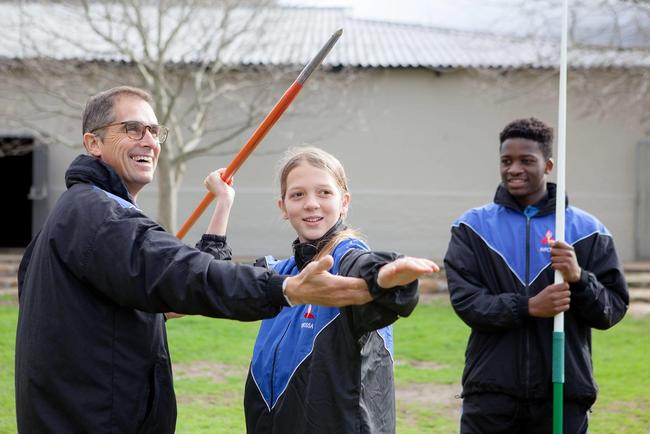
Children will naturally delight in the “feast of great ideas set before them”. They will savour them and grow in their ability to enjoy and celebrate their relationships with people, ideas and creation.
But they will also at times struggle.
We consider the struggle to be as essential to the learning process as the delight. Children must learn to labour with problems that they have not yet grasped, to remain on task when uncertain of the outcome, to struggle to completion when their minds and hands are tired, to experience the rewards and negative consequences of their actions. There will be no growth in character without the struggle.
Foremost among the enemies of the delight and the struggle necessary for the cultivation of a learner are entertainment and indulgence. These two elements encourage passivity. To grow, a student must be strenuously engaged in the work of learning. For this reason, Ambleside teachers, while often creative in their presentations, make no effort to entertain their students. And while being loving so as not to overwhelm them, they will not be indulgent either.

Through our philosophy as a whole, Ambleside staff will intentionally seek to foster each student’s growth in the art of learning and in relating well. It is our aim that students graduating from Ambleside be characterised by:
Psychological and spiritual maturity
- A vibrant relationship with God characterised by an abiding faith, a deep prayer life and a consistent obedience
- A capacity for deep friendship with others, based upon a shared appreciation of and service to the good, the true and the beautiful, rather than absurdities and harmful diversions that are the common, base ground of so many youthful relationships
- The ability to manage self well: a consistent diligence in fulfilling responsibilities to God, family, school, work and community; a kind, gracious and reflective spirit, even in the face of great adversity
- A heart that reflects the compassion of Jesus Christ for the struggling, weak, young, elderly and poor; a life that reflects an active service to others rather than self-protection and self-indulgence
The habits of a student:
- Attentive: able to perceive and to retain knowledge and ideas from a wide variety of books, things, persons and natural settings
- Receptive: a love for ideas and great appreciation for their influence upon the world; a deep respect for beauty, goodness and truth
- Thoughtful: able to ponder questions, distinguish between opinion and idea, to develop sound reasoning guided by conscience, and to produce thoughtful responses orally and in writing
- Responsible: applied wisdom that takes seriously the duty of self-education both in and out of the classroom
The ability to view life as a gift, consistently marked by purposeful and useful acts:
- A sense of place in this world and relationship with one's country
- An appreciation of different cultures, mastery of one second language and exposure to cultural diversity
- A sense of pride in one’s heritage and citizenship, viewing oneself as a person who contributes to the lives of others and who fulfills the duties of a citizen
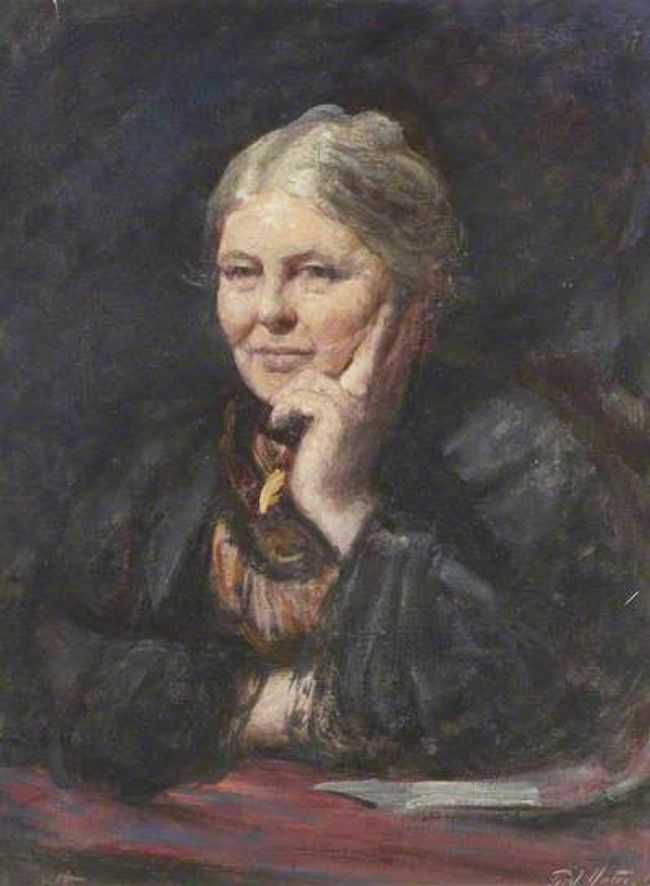
Charlotte Mason’s life (1842-1923) began with the coronation of Queen Victoria and ended as Europe was still reeling from the carnage of World War I. An English educator, author and thinker, she witnessed – and provoked – profound social and cultural change.
Orphaned at an early age, always in delicate health, and never with much financial security, Mason was the unlikely pioneer of a social and intellectual movement. That she succeeded in doing so much testifies to the power of her ideas, the depth of her friendships, and – as she herself said – the work of the Holy Spirit.
After teaching for nearly 30 years, Mason settled in the village of Ambleside, in England’s Lake District. With the support and encouragement of friends, she founded the House of Education, where she ran a teacher-preparation programme, oversaw the operation of a global correspondence school, and advised education officials.
Mason spent her life bringing “common thought on the subject of education to the level of scientific research”. Her theories were tested in thousands of English schools in the late 19th and early 20th centuries. Teachers and children using her approach consistently flourished in knowledge and character.
Mason was, herself, a voracious reader who cultivated a rich life of the mind. Her thought and practice were shaped by influences as diverse as the classical canon; 17th-century Anglican poets; 19th-century novelists and poets of nature, contemporary social critics, thinkers and educators; travels abroad; and a vast correspondence. However, her colleagues, students and friends recall encountering her rich imaginative life and powerful intellect not in a vacuum or a lecture, but in relationship with her.
Mr HW Household, secretary for education in the English county of Gloucestershire, described his experience with Mason as follows:
“In the summer of 1919 I first saw and talked with Charlotte Mason, but many letters had passed between us since 1917 when 5 of our schools began to work under her. The first visit to Ambleside, when I stayed with her at Scale How, was followed in the next 3 years by 2 other visits. In June 1920 she came to Gloucester to meet and talk to the considerable number of teachers who were working with her in our schools.
“The days spent with her were memorable. When you first saw her, knowing that she had been an invalid for many years and must have suffered much, you looked for marks of pain, weariness, weakness. But there were none. After an hour you never thought of that again.
“Years had written many lines upon her face, but they were not lines of suffering. They spoke perhaps of the passage of time, but not of age – unless age is what gives and does not take away. You no more felt that she was old than that she was frail and weak of body.
“She had quietly – she was always quiet – put pain and weakness and age away from her, and you were conscious only of what she had – of her surpassing gifts. It did not seem to you that she lacked anything. Her face was full of light, wide sympathy and understanding, delicate humour, gentleness, and love.
“When she talked with you she brought out the best that was in you, something that you did not know was there. That is a rare gift. The learned and the great are seldom so endowed. We admire them from afar – and remain afar. She caught you up to her level, and you never quite fell back again. She had given you new light, new power. She expected much of you, more sometimes than you knew you had to give. But she was right: You had it and you gave, and of course you gained by giving.
“Her power to inspire deep personal affection in the hearts of many who never saw her was remarkable. She taught a new thing, a new way. In teaching she had to show the old things and ways for what they really are. But her criticism left no sting.
“She could not be anything but generous, and the ways of her mind were wide. She did not make you feel small and foolish. You did not bite your lip or flush with vexation. She lifted and inspired. She did not drive; she led you and you went with her by happy choice.”
*Painting of Charlotte M Mason by Frederick Yates








